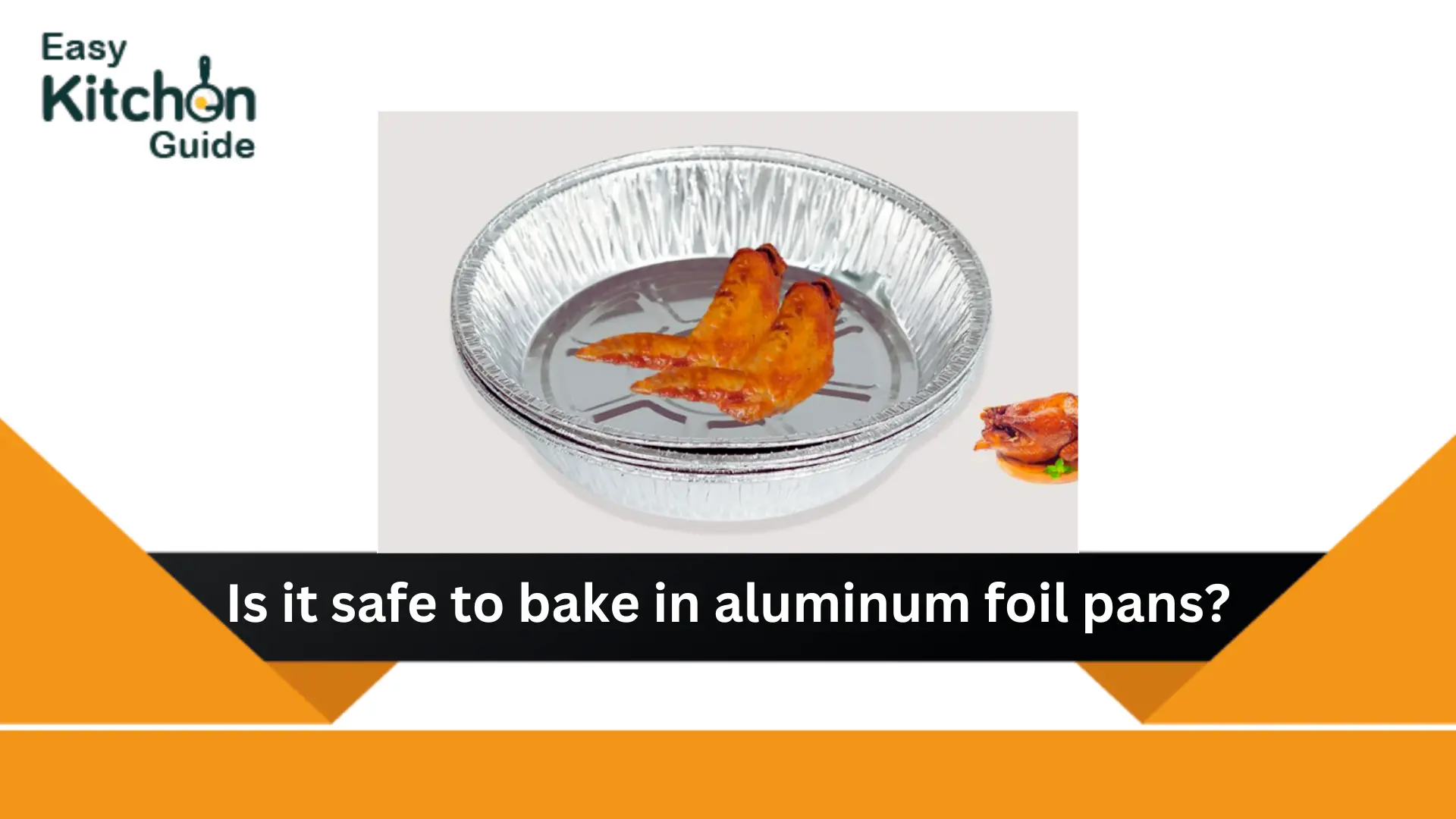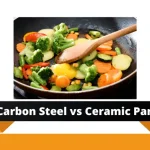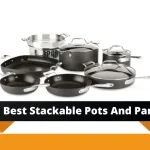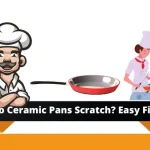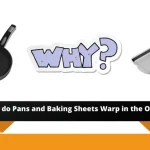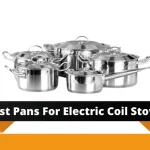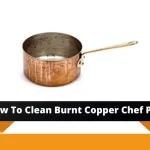In the bustling realm of culinary creativity, aluminum foil pans have carved a niche for themselves, offering convenience and ease of use. However, amidst the symphony of flavors, concerns have surfaced that Is it safe to bake in aluminum foil pans?, particularly regarding the potential leaching of aluminum into food.
This blog post delves into the science behind aluminum foil pans and their suitability for baking, providing a comprehensive guide for making informed decisions about their use in your kitchen.
Aluminum Foil Pan Material Composition:
Table of Contents,
Aluminum foil pans, the unassuming workhorses of the kitchen, are lightweight, disposable pans crafted from thin aluminum sheets. Their popularity stems from their convenience, affordability, and ability to prevent spills and messes. But beneath their humble appearance lies a crucial question: Is it safe to bake in aluminum foil pans?
The reassuring answer, echoed by kitchen sentinels and experts alike, is that the amount of aluminum transferred is minimal. Imagine it as a hint of seasoning—just enough to enhance without overpowering. This minimal leaching is attributed to a protective oxide layer that forms on the aluminum surface, acting as a barrier between the pan and the food.
Aluminum Leaching: Acidity and Saltiness
The excessive intake of aluminum causes various health concerns, including neurological disorders and Alzheimer’s disease. However, in the intricate dance of cooking, some factors can influence the delicate balance of aluminum leaching. Foods that exhibit a penchant for acidity or saltiness can elevate the chances of aluminum leaching. These culinary culprits, such as tomatoes, lemons, and salty marinades, can disrupt the protective oxide layer, allowing a small amount of aluminum to escape into the food. Below are some other factors that cause the aluminum to leach into the food.
Aluminium Temperature Resistance and Broiling Heights
Our ovens are powerful instruments, capable of transforming raw ingredients into culinary masterpieces. The aluminum foil pan, an unassuming yet resilient companion, demonstrates its prowess amidst the fiery heat. These sturdy pans are designed to bear gracefully through the oven’s warmth, effortlessly handling regular baking temperatures. Whether you’re baking cookies, roasting vegetables, or searing chicken, the aluminum foil pan stands ready to assist.
Extreme temperatures, like the scorching flames of broiling, might push aluminum to its limits. At such fiery heights, the integrity of the pan can be compromised, leading to potential risks. Extreme heat can cause the aluminum to warp or even disintegrate, releasing higher levels of aluminum into the food.
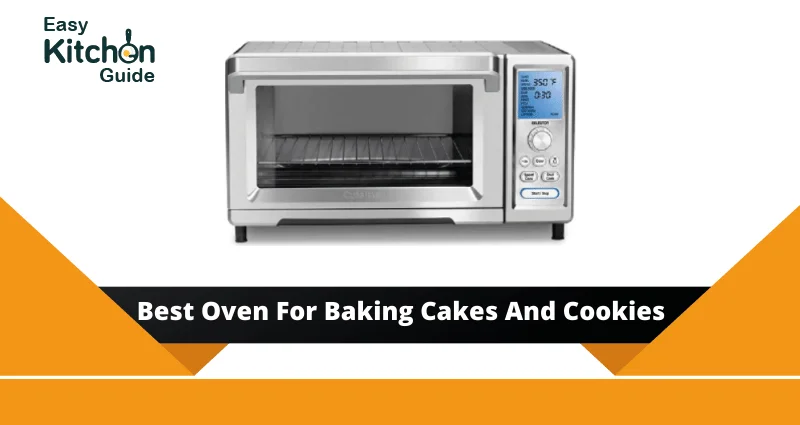
Sizzle up the best deal of the month with our state-of-the-art oven –—————- your gateway to culinary excellence at an unbeatable price
In order to minimize aluminum leaching from aluminum foil pans, follow these tips:
- Avoid acidic foods: For acidic foods, consider using alternative cookware materials like glass or stainless steel.
- Line the pan: Lining the pan with parchment paper or cooking spray can create a barrier between the food and the aluminum.
- Keep cooking times short: Avoid overcooking food in aluminum foil pans.
- Choose high-quality pans: Opt for sturdier pans with thicker aluminum sheets.
Safe Baking Practices Using Aluminium Foil Pan:
To ensure a harmonious kitchen symphony, let’s adopt some safe baking practices when it comes to our aluminum foil pans.
Maintaining a Respectable Distance: The Parchment Paper Barrier
First and foremost, let’s talk about direct contact. It’s important to prevent direct contact between your food and the aluminum surface. Enter parchment paper, the chivalrous knight of the kitchen. Lay it between your dish and the aluminum foil pan for an added layer of protection, sparing your food from unwanted aluminum advances.
Quality Matters: Choosing a Reliable Partner
Quality matters, and not just in friendships. When choosing your aluminum foil pans, lean towards reputable brands. The logic is simple: high-quality pans are less likely to engage in the dangerous dance of leaching harmful substances into your culinary creations. Think of it as choosing a reliable partner for your kitchen tango.
Alternative Aluminium Pan Options
Aluminum foil pans offer convenience and affordability in the kitchen. However, they have limitations, particularly when it comes to high-temperature cooking and acidic foods. Here’s a closer look at aluminum foil pans and their alternatives:
Aluminum Foil Pans Limitations
Aluminum foil pans are lightweight, disposable, and readily available. They work well for lining baking sheets, roasting meats, and storing leftovers. However, aluminum is reactive with acidic foods, which can cause the metal to leach into the food. Additionally, aluminum foil pans are not suitable for high-temperature cooking, such as broiling or grilling, as they can warp or melt.
Alternative Options
While aluminum foil pans offer convenience, there are several alternative pan options available that may be safer and more versatile:
- Glass bakeware: Glass is non-reactive and does not leach any chemicals into food. It is also heat-resistant, making it suitable for high-temperature cooking. Glass bakeware is also easy to clean and maintain.
- Stainless steel bakeware: Stainless steel is another durable and safe option for baking. It is non-reactive with acidic foods and can withstand high temperatures. Stainless steel bakeware is also easy to clean and dishwasher-safe.
- Ceramic bakeware: Ceramic bakeware is non-toxic and provides even heat distribution. It is safe for high-temperature cooking and does not react with acidic foods. Ceramic bakeware is also relatively lightweight and easy to clean.
By understanding the limitations of aluminum foil pans and exploring alternative options, you can make informed decisions about your cookware choices. Opting for safer and more versatile pans can enhance your cooking experience and promote overall well-being.
Also, Read Trending Topics
Reassuring Conclusion:
Yes, it is safe to bake in aluminum foil pans, provided we follow the steps of these well-choreographed kitchen rules. Embrace the convenience and relish the versatility, but do so with a sprinkle of caution.
Safety as a Dialogue, Not a Monologue
In the realm of aluminum foil pans, safety is not a monologue but a dialogue—a conversation between the chef and the pan. A dialogue that, when conducted with care, leads to culinary masterpieces and moments of pure baking bliss. So, fear not, and bake on with care!

